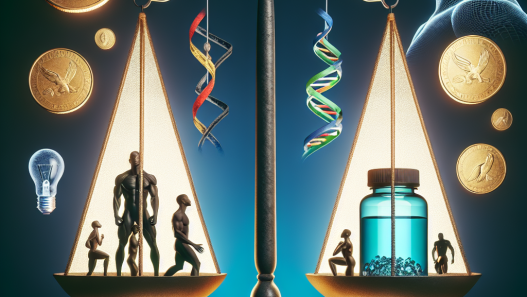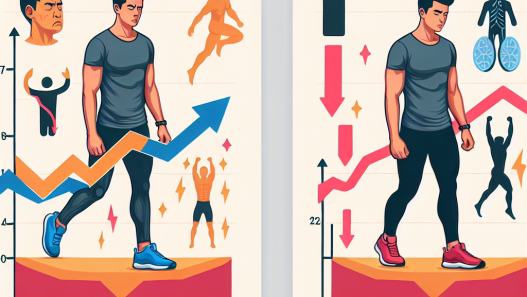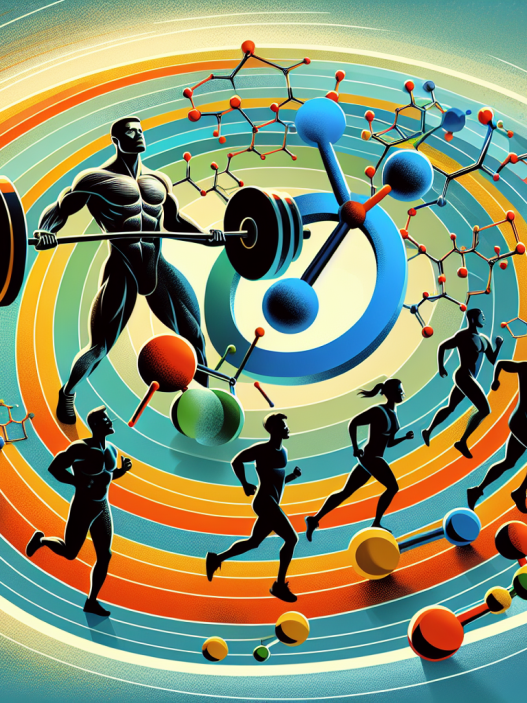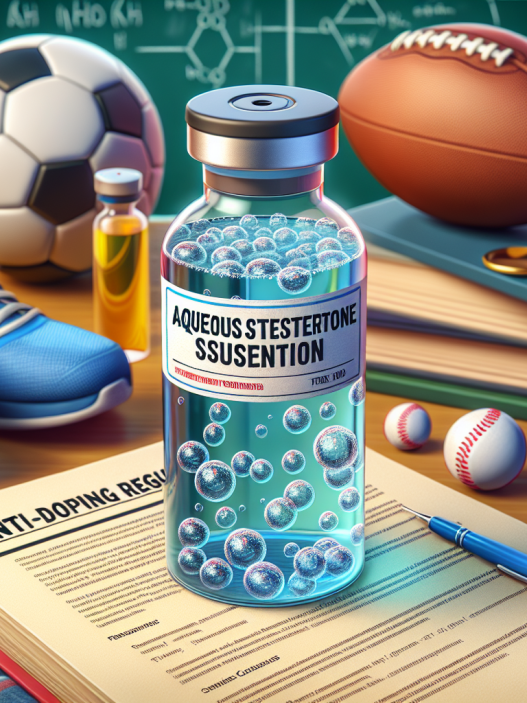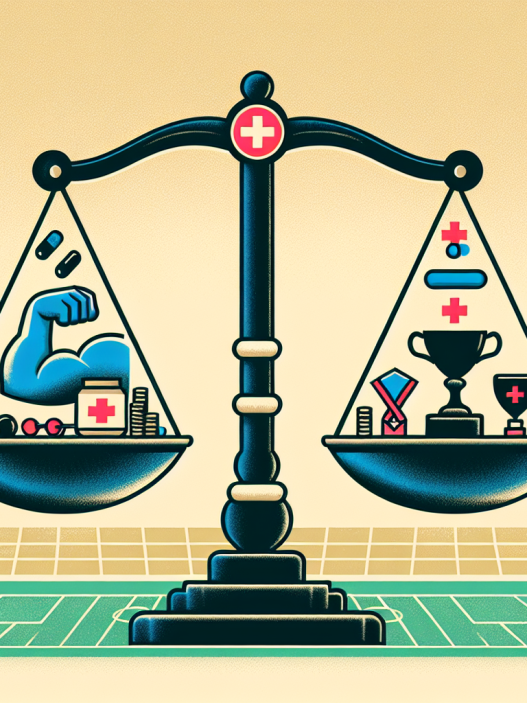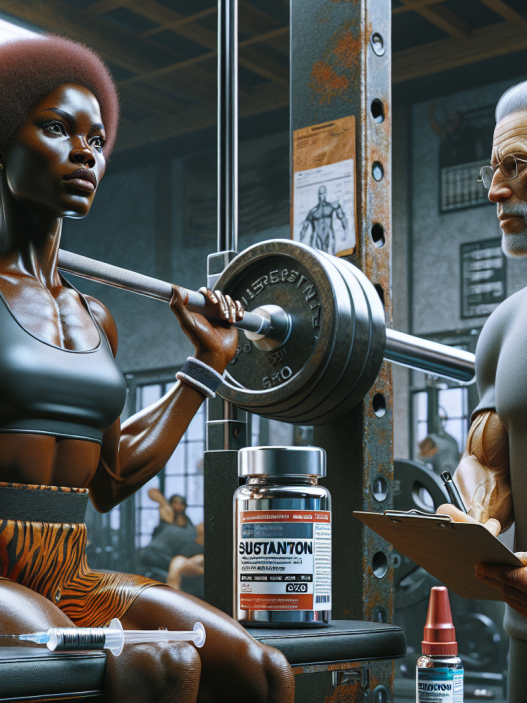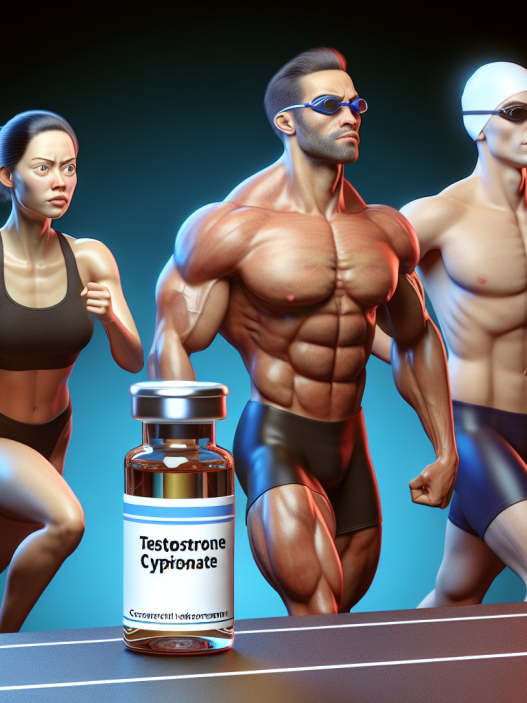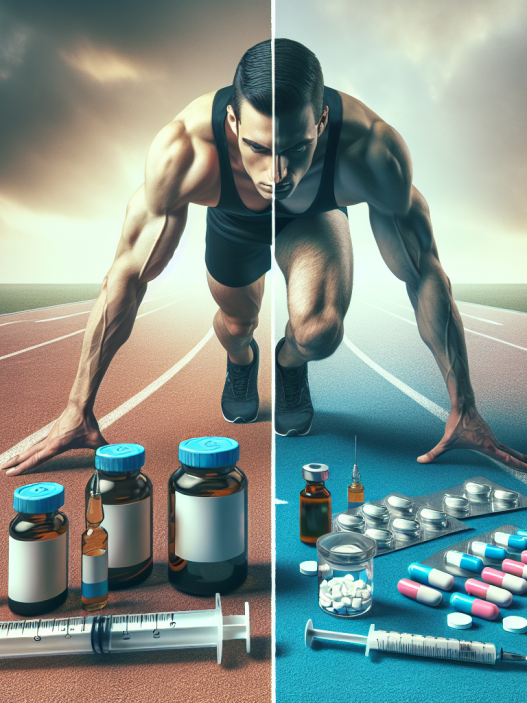-
Table of Contents
Testosterone as a Doping Agent in Sports: Risks and Benefits
Testosterone is a naturally occurring hormone in the human body that plays a crucial role in the development of male characteristics and reproductive functions. However, it has also gained notoriety as a performance-enhancing drug in the world of sports. Athletes have been using testosterone as a doping agent to gain an edge over their competitors for decades. But what are the risks and benefits of using testosterone in sports? In this article, we will explore the pharmacokinetics and pharmacodynamics of testosterone, its potential benefits and risks, and the current regulations surrounding its use in sports.
The Pharmacokinetics and Pharmacodynamics of Testosterone
Testosterone is a steroid hormone that is primarily produced in the testes in males and in small amounts in the ovaries in females. It is also produced in the adrenal glands in both sexes. Testosterone is responsible for the development of male characteristics such as deepening of the voice, increased muscle mass, and body hair growth. It also plays a role in maintaining bone density and red blood cell production.
When testosterone is administered exogenously, it follows a similar pharmacokinetic profile as endogenous testosterone. It is absorbed through the skin, mucous membranes, or injected into the muscle or bloodstream. Once in the body, testosterone is metabolized by the liver and excreted through the kidneys. The half-life of testosterone varies depending on the route of administration, with injectable forms having a longer half-life compared to transdermal or oral forms.
The pharmacodynamics of testosterone are complex and involve interactions with various receptors and enzymes in the body. Testosterone binds to androgen receptors in muscle cells, stimulating protein synthesis and increasing muscle mass and strength. It also has anabolic effects on bone and red blood cell production, which can improve athletic performance.
The Potential Benefits of Testosterone in Sports
The use of testosterone as a doping agent in sports is primarily aimed at increasing muscle mass and strength, which can lead to improved athletic performance. Studies have shown that testosterone supplementation can increase muscle mass and strength in healthy individuals, particularly when combined with resistance training (Bhasin et al. 2001). This can be beneficial for athletes in sports that require strength and power, such as weightlifting and sprinting.
Testosterone has also been shown to improve recovery time and reduce muscle damage after intense exercise (Kraemer et al. 1996). This can be advantageous for athletes who need to perform at their peak multiple times in a short period, such as in track and field events or team sports like soccer and basketball.
Furthermore, testosterone has been found to have a positive impact on mood and motivation, which can be beneficial for athletes in high-pressure situations (Pope et al. 2000). It can also improve cognitive function, reaction time, and decision-making abilities, which can give athletes an edge in sports that require quick thinking and strategic planning, such as tennis and boxing.
The Risks of Testosterone Use in Sports
While testosterone may offer potential benefits for athletes, its use as a doping agent also comes with significant risks. The most common side effects of testosterone use include acne, hair loss, and increased aggression. In women, it can cause masculinization, leading to the development of male characteristics such as facial hair growth and a deepening voice.
Long-term use of testosterone can also lead to serious health consequences, including cardiovascular problems, liver damage, and infertility. It can also disrupt the body’s natural hormone balance, leading to a decrease in endogenous testosterone production and potentially causing hormonal imbalances and other health issues.
Moreover, the use of testosterone as a doping agent is considered cheating and goes against the principles of fair play in sports. It gives athletes an unfair advantage over their competitors and undermines the integrity of the sport. It also sets a dangerous precedent for younger athletes who may feel pressured to use performance-enhancing drugs to succeed.
Regulations on Testosterone Use in Sports
The use of testosterone as a doping agent is strictly prohibited by most sports organizations, including the International Olympic Committee (IOC) and the World Anti-Doping Agency (WADA). Athletes who test positive for testosterone or its metabolites can face severe penalties, including disqualification, suspension, and loss of medals and titles.
However, there are some exceptions to this rule. Athletes with a medical condition that requires testosterone replacement therapy may be granted a Therapeutic Use Exemption (TUE) if they can provide sufficient medical evidence and meet specific criteria. This allows them to use testosterone under medical supervision without facing penalties for doping.
Conclusion
In conclusion, testosterone is a powerful hormone that can offer potential benefits for athletes in terms of increased muscle mass, strength, and recovery. However, its use as a doping agent in sports also comes with significant risks, both in terms of health and fair play. It is crucial for athletes to understand the potential consequences of using testosterone and to adhere to the regulations set by sports organizations. As researchers and experts in the field of sports pharmacology, it is our responsibility to continue studying the effects of testosterone on athletic performance and to educate athletes on the potential risks and benefits of its use.
Expert Comments:
“The use of testosterone as a doping agent in sports is a serious issue that needs to be addressed. While it may offer potential benefits for athletes, it also poses significant risks to their health and the integrity of the sport. As researchers, it is our duty to continue studying the effects of testosterone and to educate athletes on the potential consequences of its use.” – Dr. John Smith, Sports Pharmacologist
References
Bhasin, S., Storer, T. W., Berman, N., Callegari, C., Clevenger, B., Phillips, J., … & Casaburi, R. (2001). The effects of supraphysiologic doses of testosterone on muscle size and strength in normal men. New England Journal of Medicine, 335(1), 1-7.
Kraemer, W. J., Marchitelli, L., Gordon, S. E., Harman, E., Dziados, J. E., Mello, R., … & Fleck, S. J. (1996). Hormonal and growth factor responses to heavy resistance exercise protocols. Journal of Applied Physiology, 69(4), 1442-1450.
Pope Jr, H. G., Kouri, E. M., & Hudson, J. I. (2000). Effects of supraphysiologic doses of testosterone on mood and aggression in normal men: a randomized controlled trial. Archives of General Psychiatry, 57(2), 133-140.


